Chemistry

Educators and Parents, Sign Up for The Cheat Sheet
Weekly updates to help you use Science News Explores in the learning environment
Thank you for signing up!
There was a problem signing you up.
-
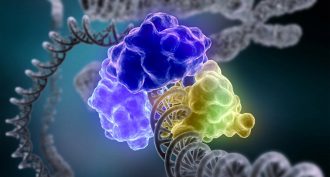 Chemistry
ChemistryTrio gets chemistry Nobel for figuring out DNA repair
Three researchers have won the 2015 Nobel Prize in chemistry for working out how cells fix damaged genetic material.
By Meghan Rosen and Sarah Schwartz -
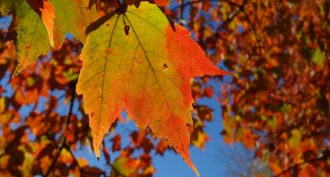 Chemistry
ChemistryA teen turns an autumn chore into a science project
Many scientists are trying to turn plants into a renewable fuel. One teen decided to help, by extracting sugars from the dead leaves on his lawn.
-
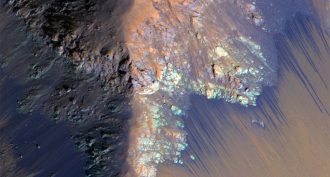 Planets
PlanetsPicture This: Evidence of liquid water on Mars
Mars hosts surface salt deposits. They appear to come from seasonal water flows on the Red Planet, a new study concludes.
-
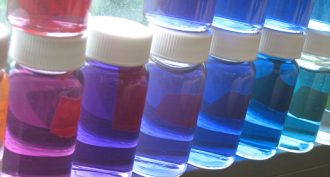 Environment
EnvironmentNanosilver: Naughty or nice?
Nanosilver is in many products, from socks to toothbrushes. The tiny particles kill microbes. But it’s still unclear whether they can harm us or the environment.
-
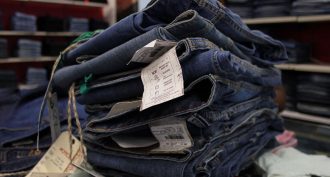 Chemistry
ChemistryBacteria become source of ‘greener’ blue jeans
Manufacturing indigo to dye blue jeans now relies on harmful chemicals. But researchers have found a less polluting way to produce the blue tint: bacteria.
-
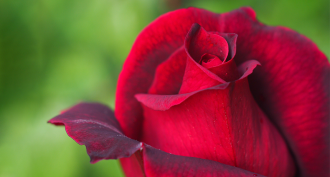 Chemistry
ChemistrySecret to rose scent surprises scientists
Scientists discovered the molecular tool that roses use to make fragrance. And it wasn’t what they expected.
By Beth Mole -
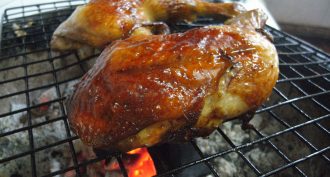 Chemistry
ChemistryTaking chicken off the grill and into the lab
Grilling meat can produce carcinogens. A teen studied how to grill chicken to produce the fewest of these cancer-causing chemicals.
-
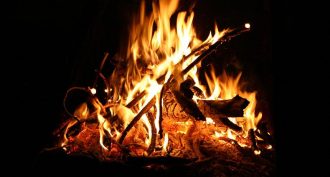 Chemistry
ChemistryNews Brief: Common campfire style is still the best
Humans tend to build fires in the same way, in a pyramid as tall as it is wide. New calculations show this shape burns hottest.
By Beth Mole -
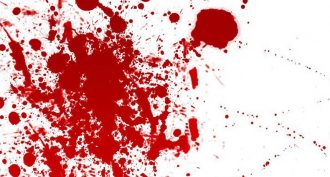 Chemistry
ChemistryThe science of getting away with murder
A student took her love of crime shows to the next level. She did a science fair project to find out which cleaner works best at getting rid of bloody evidence.
-
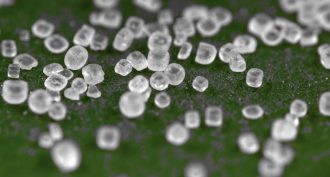 Chemistry
ChemistryScientists Say: Ion
Some atoms and molecules have a positive or negative electrical charge. These are called ions.
-
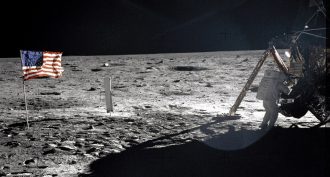 Chemistry
ChemistryCool Jobs: Saving precious objects
Museum conservators are experts at protecting and restoring precious objects. Along with art or history, many also have studied chemistry, physics, archaeology or other scientific fields.
-
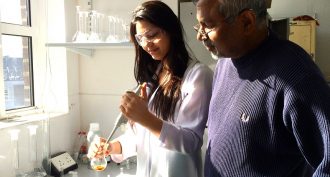 Chemistry
ChemistryHow sweat might make you smell sweeter
A new scent-delivery system ensures that the more you sweat, the more perfume it releases. In fact, it only works in contact with moisture.